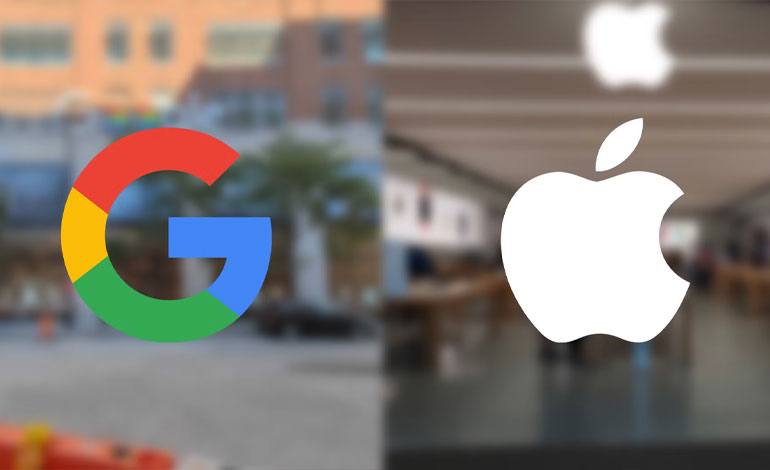Apple and Google: Could These Two Tech Giants Become Brothers in Innovation?

For years, Apple and Google have danced an intricate waltz of rivalry and cooperation. One day they’re squaring off in courtrooms over patents, the next day they’re collaborating on industry-wide standards for privacy or pandemic tracking. It’s a relationship that defies black-and-white labels—a complicated blend of competition, cooperation, and quiet admiration.
But here’s a thought: what if Apple and Google, two of the most powerful tech companies in the world, could align more strategically—almost like brothers in arms rather than perpetual rivals? What could that look like, and more importantly, why might it happen?
The Current Landscape: A Tale of Two Titans
To understand whether Apple and Google could ever act like “brothers,” we need to grasp who they are at their core.
- Apple thrives on hardware. iPhones, iPads, Macs, AirPods—its revenue comes primarily from premium, tightly integrated devices. It builds its ecosystem from the ground up, focusing on user privacy, design elegance, and a “walled garden” approach where Apple controls nearly every part of the user experience.
- Google, on the other hand, is a software-first giant. Its bread and butter is advertising, which means data and reach are key. Google powers Android, runs the world’s most-used search engine, dominates email through Gmail, and owns YouTube. Its ecosystem is open, wide-reaching, and built on scale.
In many ways, their philosophies are polar opposites. Yet, ironically, they rely on each other in big ways. In 2023, for instance, Apple earned an estimated $20 billion from Google for making Google Search the default on iPhones—a figure that shows how deeply entwined they already are.
So, with so much overlap and interdependence, is it really that far-fetched to imagine deeper collaboration?
Signs of a Budding Brotherhood
Let’s explore a few moments where Apple and Google did act more like allies than adversaries.
1. COVID-19 Contact Tracing API (2020)
At the height of the pandemic, Apple and Google came together in an unprecedented move: they jointly created a secure, cross-platform API for COVID-19 exposure notifications. This allowed iPhones and Android phones to anonymously share proximity data to help slow the virus’s spread—all while respecting user privacy.
That cooperation was widely praised, not just for its utility, but for how it showed two tech giants setting aside competition for a greater good.
2. RCS Messaging and User Experience
Google has long pushed for RCS (Rich Communication Services) as a replacement for outdated SMS. Apple resisted—until recently. In 2024, Apple finally agreed to support RCS on iPhones. While it didn’t open up iMessage, it was a significant gesture, reducing friction between Android and iPhone users.
Why did Apple budge? Likely a mix of regulatory pressure and user demand—but it also points to a willingness to compromise for ecosystem harmony.
3. AI and Cross-Pollination
There are whispers (as of early 2025) that Apple may integrate Google’s powerful Gemini AI into future iPhones. While not confirmed, this would be a huge step. It would mirror Apple’s earlier deals with Microsoft’s Bing and show that Apple sees value in Google’s core tech.
This kind of move reflects a maturity: recognizing where the other excels, and being open to leveraging that strength instead of duplicating effort.
What Could a True Partnership Look Like?
If Apple and Google were to act more like “brothers” than rivals, we might see a new kind of tech collaboration—one that benefits users, developers, and even regulators. Here’s what that might look like:
1. Seamless Ecosystem Integration
Imagine being able to use your iPhone to instantly log into your Google Workspace apps, or having iCloud and Google Drive work together instead of compete. Developers could build once and deploy on both iOS and Android with less friction, encouraging innovation.
2. Joint Privacy Standards
Both companies talk a big game about user privacy—Apple markets it, Google engineers it. Working together on universal privacy frameworks or AI ethics standards could set a global benchmark.
3. Cross-Platform AI Assistants
Siri has struggled compared to Google Assistant. If Apple licensed Gemini or co-developed an AI layer with Google, we could finally see truly intelligent, cross-platform digital help. Think smarter homes, better accessibility, and more human-like interaction.
The Obstacles: Why It’s Not So Simple
Of course, any such “brotherhood” comes with baggage.
- Regulatory scrutiny: Governments around the world are already wary of Big Tech collusion. If Apple and Google got too close, antitrust watchdogs might pounce.
- Brand identity: Apple’s reputation hinges on control, exclusivity, and “doing it themselves.” Deep ties with Google could dilute that image.
- Data philosophies: Apple locks down data; Google monetizes it. Reconciling those models would be like merging oil and water.
Despite these challenges, the market—and consumers—might actually push them closer. With AI, privacy, and global standards becoming central tech issues, neither company can afford to go it alone forever.
Final Thoughts: Brothers, Not Twins
So, can Apple and Google become brothers?
In many ways, they already are—sibling rivals who push each other to innovate, while quietly depending on each other’s strengths. Like brothers in a complex family, they fight, compete, and disagree, but they also recognize when unity serves the bigger picture.
We may never see a formal alliance, a merger, or shared leadership. But we might see more moments like the COVID-19 API, or AI collaboration, where the focus shifts from dominance to development—from winning to building something better together.
And that’s the kind of brotherhood the tech world—and its billions of users—could truly benefit from.






